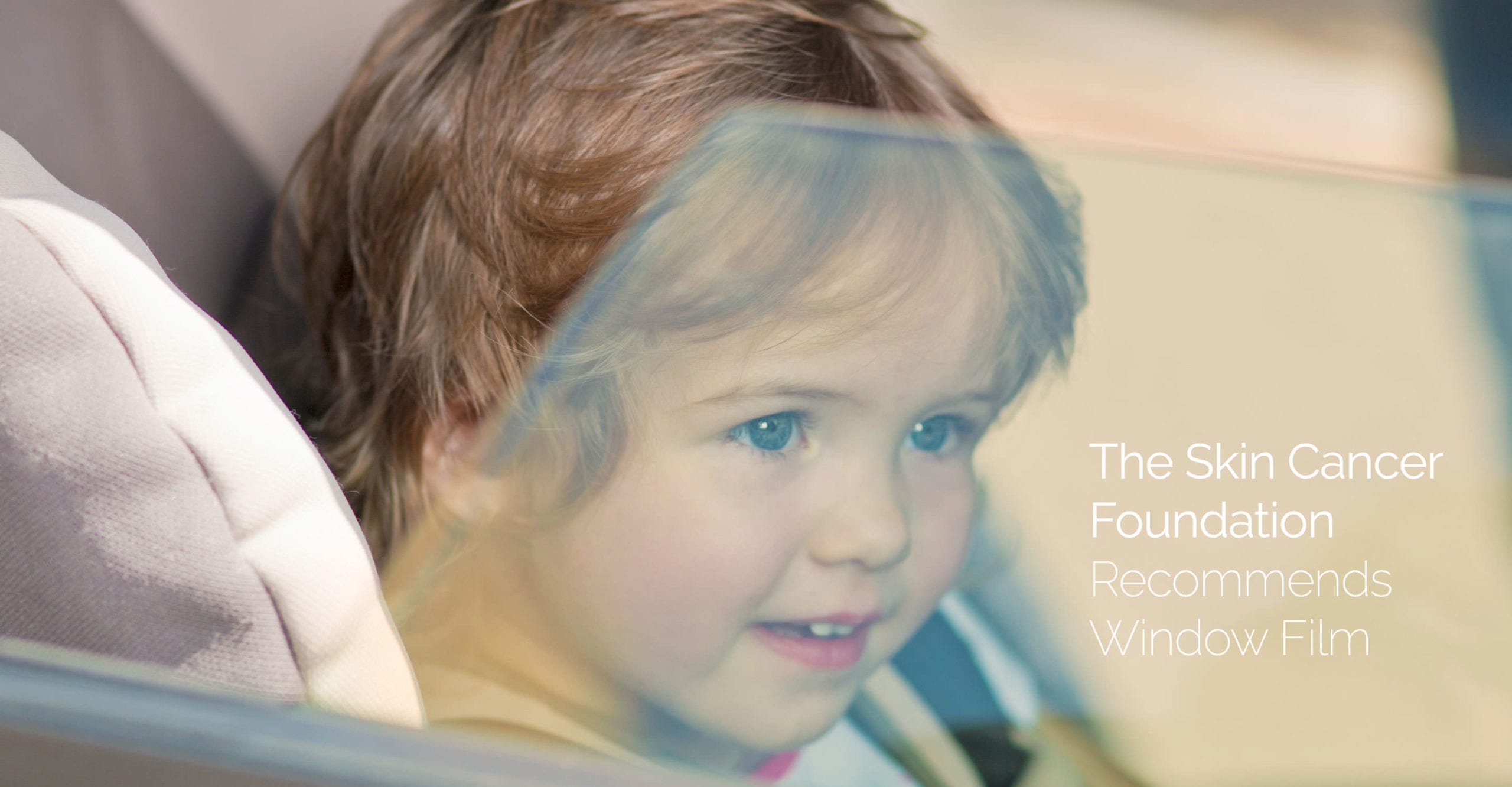What does “sun exposure” mean to you? Most likely you’re imagining a day at the beach or being outside for an extended period of time, but the truth is millions of Canadians are getting a large dose of sun exposure in two places they least expect it- in their homes and vehicles.
Whether your favorite chair is next to a nice big window, or you have to commute to work in your car, if you are unprotected, you’re putting yourself at risk for irreversible skin damage. It’s recommended that you take protective measures like full-coverage clothing, applying sunscreen with an SPF of 15 or higher, and donning a hat and sunglasses while driving-especially if you drive a convertible.
Those solutions are fine in theory, but it’s easy to forget sunscreen and a long sleeve shirt might be simply too hot to bear. So, if you’re frequently near a window at home, in your car, or even at work, the single best safeguard against UV damage is transparent window film, or “window tint”. Protective window film is treated to screen out damaging UVA and UVB rays and can be applied to your home, commercial, or vehicle windows. One of the main selling features of a vehicle is a sunroof and a number of windows. Unfortunately, the laminated windshield is the only window that comes with both UVB and UVA protection. The side and rear windows, even if the glass is tinted darker, provide almost no UV protection.
Advanced window tint is rated to block up to 99.9% of UV rays, and can go a long way to prevent skin damage to the driver and the occupants. Each province has different regulations around how dark a tint is allowed and how many windows it can be applied to, but even clear UV rated window tint can almost eliminate skin damage from the sun.
- There are more new cases of skin cancer each year than the number of breast, prostate, lung, and colon cancers combined!
- One in every three cancers diagnosed worldwide is skin cancer, 80-90% of which are caused by UV radiation.
- UV-absorbing auto window film reduces skin cell death by 93 percent.
- Chronic exposure to UVA rays through windows can age your skin 5 to 7 years quicker.
Vehicle, residential and commercial window tint comes in a variety of tints that have many benefits. In addition to blocking out the harmful UV rays that accelerate skin damage, vehicle, home, or commercial window tint also:
- In hot weather, it reduces the interior temperature of the vehicle or home, meaning you can cut down on expensive air conditioning.
- It eliminates areas of glare or hot spots.
- In cold weather, home and commercial window films have been shown to capture interior heat, which prevents heat from escaping through the windows, minimising heating costs.
- It prevents fading and sun damage to vehicle upholstery and home furnishings.
- Window tint enhances the cosmetic appearance of your home or vehicle, increasing resale value.
- It makes it hard for people to see through the glass, and protects the privacy and safety of the occupants, and your valuables.
- It prevents injuries from fractured or shattered glass, and some tint is rated shatter-proof.



